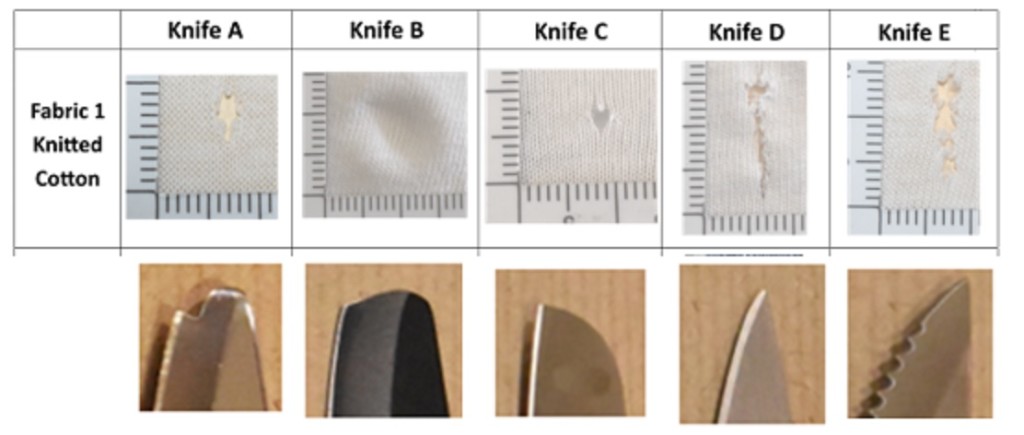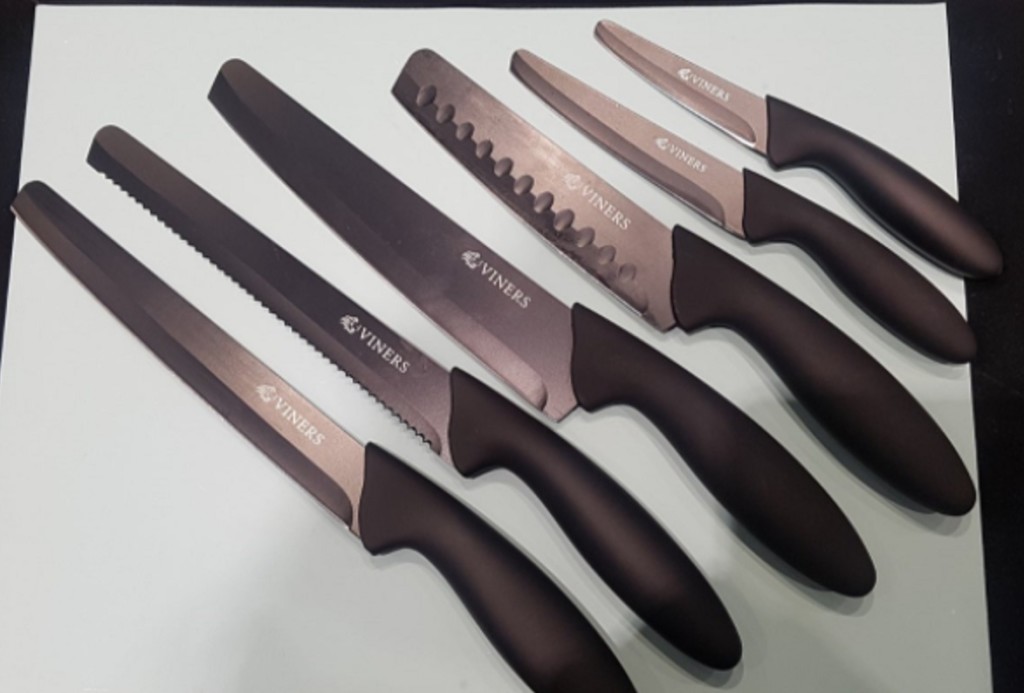Replacing pointed-tip kitchen knives with rounded blades could help reduce knife crime and prevent sharp injuries within the home, states research from De Montfort University Leicester (DMU). The new study tested the Viners’ Assure knife range (from The Rayware Group), which has rounded tips, alongside four other types of kitchen knives with different shaped blade tips.
Senior lecturer in Forensic Science at DMU, Leisa Nichols-Drew used the knives for ‘stab tests’ on items of clothing, examining the damage caused by each knife. The Viners’ Assure knife did not pierce any of the four fabrics used in the research. Forensic experts are now asking knives manufacturers, retailers and police forces to encourage consumers to switch to rounded-tip knives.

Leisa conducted 300 ‘tests’ using a single downward stabbing motion on four garments made from different materials (a t-shirt, a pair of denim jeans, a long-sleeved jumper and a faux leather skirt). Her research was in collaboration with professors and forensic experts from the University of Leicester and Northumbria University.
In addition to Viners’ Assure rounded-tip knife, Lisa used a blade with an ‘r-shaped’ tip, a blade with an asymmetric tapered ‘sheepsfoot’ tip, ‘a traditional pointed-tip blade, and a serrated-edged blade with pointed tip.
The results revealed significant differences between the stab hole size and shape, depending on the design of the knife, with all but the rounded tip causing some form of damage.

“Our research suggests that there is an opportunity for crime reduction by swapping pointed-tip knives for rounded blades in the kitchen,” confirmed Leisa. “A knife that can be used safely and effectively at home without the possibility of accidental injury minimises the risk of it being used as a potential weapon.”
The university highlights that more than 5,000 people were treated by the NHS in 2018/19 due to assault by a sharp object – a 2% increase on the previous year and 41% higher than 2014/15.
“Bladed weapons are frequently encountered in violent crime offences but it’s important to remember that knife crime doesn’t just happen on the street – it can happen anywhere and it often happens in the home, within domestic altercations,” Leisa stated.
“With the rounded knife causing no severance damage at all, it should be considered as a clear alternative to pointed-tip knife blades. We want to remove the need for pointed knives. The majority of fatal injuries are caused by penetrative stabbings,” she added.

Leisa spoke to police forces across the UK for her research and the DMU is working closely with Leicestershire Police, Leicestershire City Council and the Deputy Police and Crime Commissioner in response to knife crime in the city. Prior to joining DMU, Leisa was a practitioner for the Home Office’s Forensic Science Service, working on some of Britain’s most notorious major crime cases. She later worked as a trainer for the police, judiciary and Crown Prosecution Service.
“My time in case work definitely inspired me to want to do this research,” she explained. “I remember thinking at the time that there had to be a way to lower the risk of these terrible crimes from happening.”
Leisa concluded: “I think it’s so important to take a proactive approach in the reduction of knife crime.”























